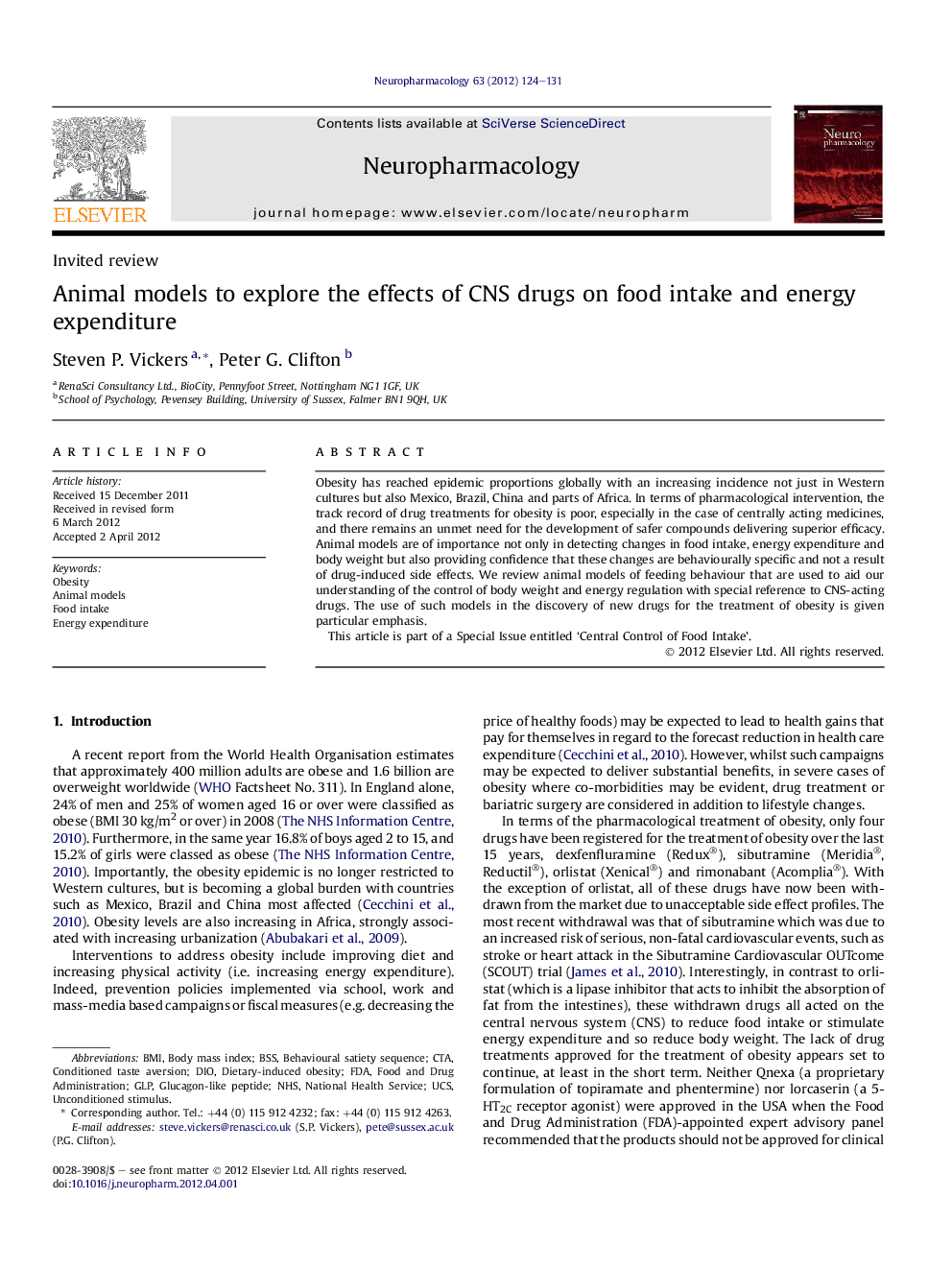| Article ID | Journal | Published Year | Pages | File Type |
|---|---|---|---|---|
| 2493739 | Neuropharmacology | 2012 | 8 Pages |
Obesity has reached epidemic proportions globally with an increasing incidence not just in Western cultures but also Mexico, Brazil, China and parts of Africa. In terms of pharmacological intervention, the track record of drug treatments for obesity is poor, especially in the case of centrally acting medicines, and there remains an unmet need for the development of safer compounds delivering superior efficacy. Animal models are of importance not only in detecting changes in food intake, energy expenditure and body weight but also providing confidence that these changes are behaviourally specific and not a result of drug-induced side effects. We review animal models of feeding behaviour that are used to aid our understanding of the control of body weight and energy regulation with special reference to CNS-acting drugs. The use of such models in the discovery of new drugs for the treatment of obesity is given particular emphasis.This article is part of a Special Issue entitled ‘Central Control of Food Intake’.
► Obesity is becoming a global burden. ► Animal models of food intake and energy expenditure are discussed. ► Animal models can detect changes in food intake or energy expenditure in response to CNS drugs. ► Models are helpful in indicating the behavioural specificity of effects on feeding behaviour.
